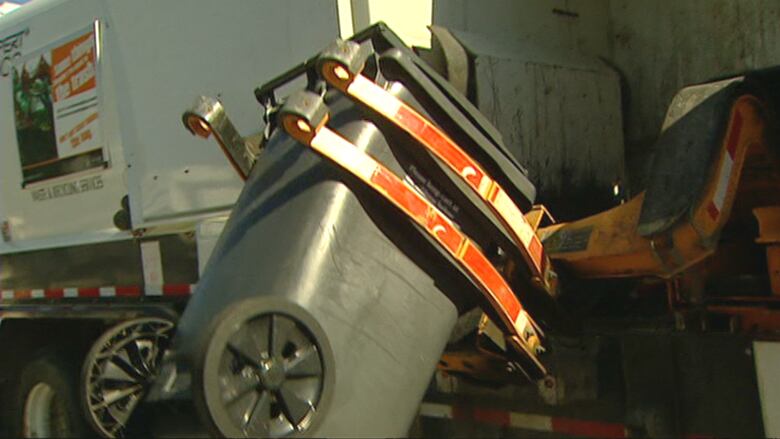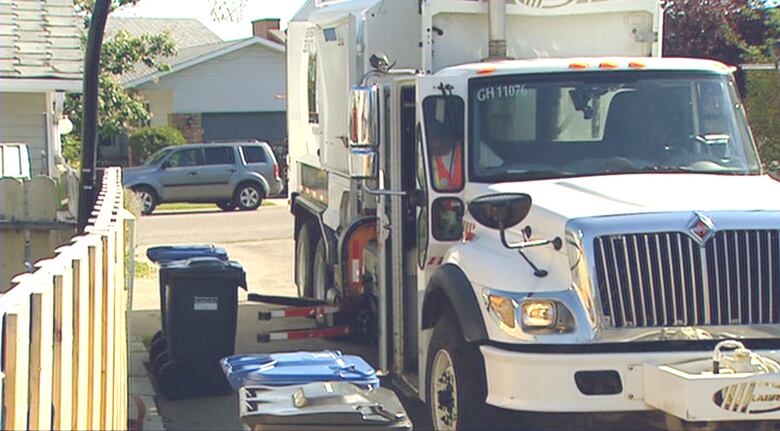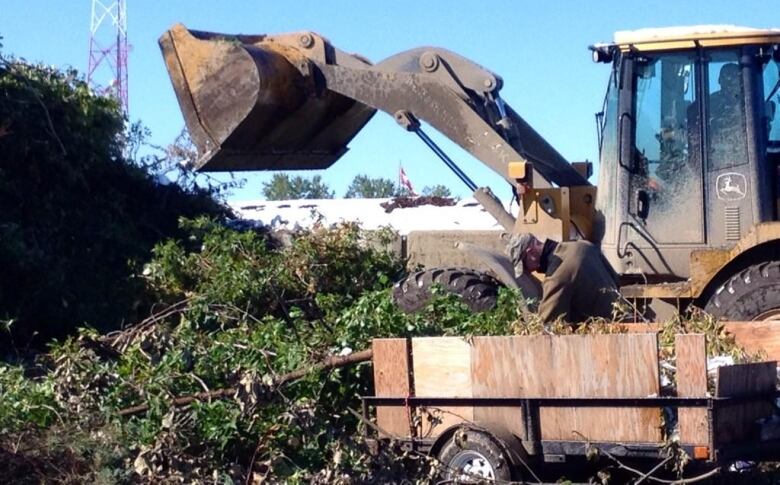Councillors have concerns about proposed black cart fee
Waste and recycling services wants less tax revenue but new fee added on utility bills

Some members of council have concerns about changes planned by the city to pay for the curbside pickup of black carts.
The city wants to be more transparent with Calgarians about the cost of garbage service.

So, it's proposing to add a new black cart fee in 2019.
The service is currently funded by $20 million a year in property tax revenues.
Waste and recycling servicesis proposing to lower its annual requisition of tax dollars by $20 million, buta newmonthly black cart fee would make up the same amount of cash.
Accounting change
The director of waste and recycling, Rick Valdarchi, said it's an accounting change but they'll be careful in letting Calgarians know how this will work.
"Really what we're trying to achieve is transparency of cost for service delivery. Right now, there's a blend of funding certainly for the black cart and partially for the green cart," said Valdarchi.
"We're trying to get to that level of transparency you see on the blue cart."
Currently, homeowners pay a $6.50 monthly green cart fee, a $8.50 monthly blue cart fee and $4.90 a month for a waste management charge.
Valdarchi said that charge is actually not for black cart service. Collected since 2009, it helps pay for the cost of city landfills.
Next year, that charge would be dropped from monthly bills and funded through property tax revenues.
The proposed black cart rate for 2019 hasn't been set yet. But based on the 2018 budget, Valdarchi estimates it would be $6.75 monthly.
A council committee approved the plan Wednesday, but some councillors had some questions.
Gondekwants city to be clear on changes
If the plan goes ahead, Coun. Jyoti Gondek said she's concerned that Calgarians will start to see their utility bill go up in January 2019.
But their tax bill won't be due until mid-year and they may not even notice it would be slightly smaller.
"That's going to look like we've billed them twice. I want to be very clear in the communication," said Gondek.

She'd like the reduction in property taxes to be made clear on those tax bills if council decides to approve the proposal.
"If I can't see where one thing's come off and another thing's come on, I'm going to have a very hard time explaining that to other residents as well."
There are also concerns that while waste and recycling wants $20 million a year less from the city's budget, there is no guarantee council will pass on the lower tax requisition.
Sutherland says give it back
Coun. Ward Sutherland, who is the chair of the utilities and corporate services committee, said he expects a push around the council table to ensure that reduction is reflected on property tax bills.
He said the plan is a little complicated but at the end of the day, he wants Calgarians to see the $20 million reduction.
"It's our job as council to make sure that happens," said Sutherland.
"I can tell you from my perspective and from most of councillors that I've talked to, would definitely give the credit back and we should do that."
City council will vote on the policy change later this month.
The estimated charges for 2019 waste and recycling services are expected to be released publicly in late April.
The 2019-2022 budget will be put to a council vote this November.
Less frequent green cart pick-up nextwinter
There could also be another change on the waste and recycling portion of your monthly utility bill in the near future.
The committee approved a plan to switch to green carts being picked up every other week, starting in November 2018.
The amount of compostable materials being picked up is lower in winter months so it's thought that weekly pick-up isn't necessary.
Reducing the frequency is expected to save $2 million annually in lower fuel and labour costs.
Valdarchi estimates it could mean 30 fewer jobs in the department.
If council approves the change, he said there could be layoffs. However, the job cuts would be several months away and layoffs could be avoided through attrition.












_(720p).jpg)


 OFFICIAL HD MUSIC VIDEO.jpg)
.jpg)



























































































